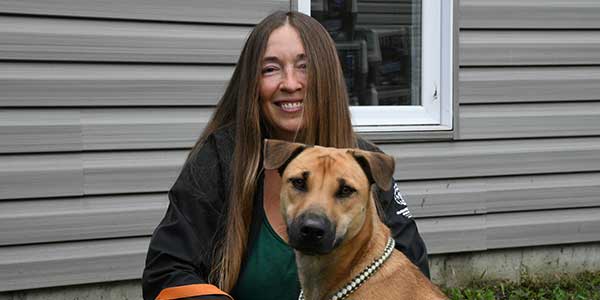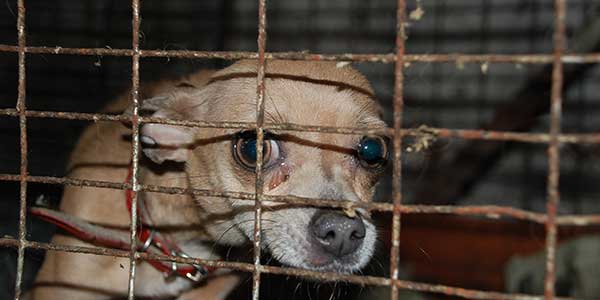The Dog Meat Trade
Overview
Across Asia, millions of dogs and cats are brutally killed for meat. In South Korea, dogs are farmed in appalling conditions. Our global affiliates close down these dog farms for good by helping farmers transition to more humane industries and rescuing the dogs on the farms. Friends of HSI has cared for hundreds of these rescued dogs at our care and rehabilitation centre before they are placed in loving homes.
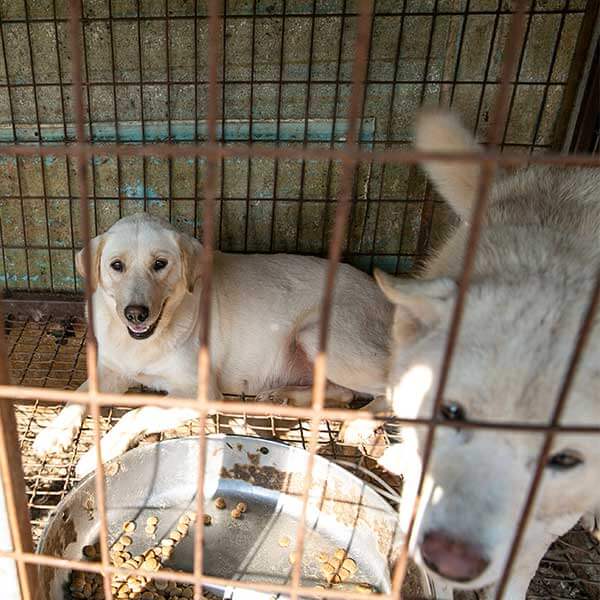
Dogs and cats killed annually for human consumption across Asia
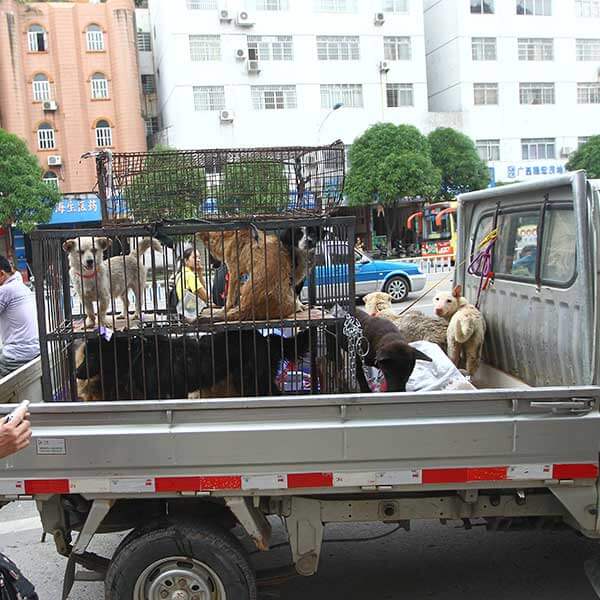
Terrified dogs crammed onto a single trader’s truck
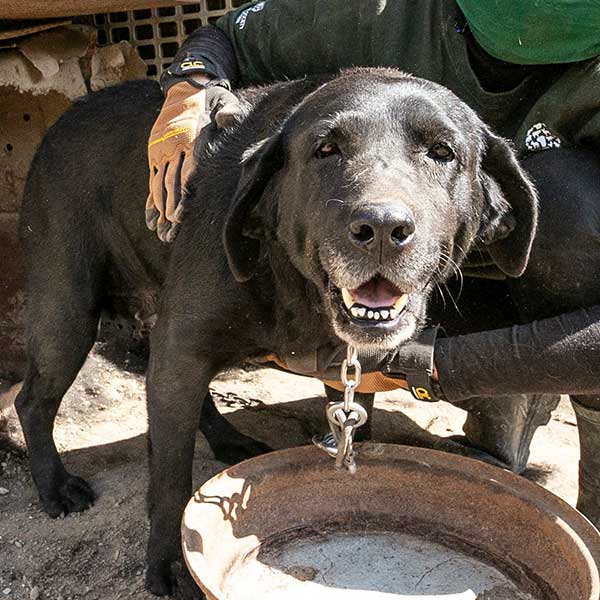
Dog meat farms in South Korea
The Issue
- Dog and cat traders snatch animals from the streets, steal pets from backyards or buy them from owners. They are crammed together on the back of trucks and driven for days—sick, hungry, thirsty, injured and afraid—then beaten to death or hanged in slaughterhouses or markets. In South Korea, dogs are bred in barren cages, without proper food, water or protection from the elements. Most people across Asia don’t eat dog or cat meat, and HSI is working through our local affiliates and partners to campaign for change.
- Friends of HSI provides crucial rehabilitation and veterinary care for hundreds of dogs rescued from the dog meat trade at our Care and Rehabilitation Centre in Québec.
- Our team includes professional behavior therapists, and we use science-based and ethical training methods such as positive reinforcement to show these rescue dogs how to walk on a leash, walk up and down the stairs, play, and ultimately, trust humans again. We equip them with the skills they need to help them find loving homes through our placement partners.
Learn more about our recent adoption updates.
Dog Meat Trade Facts
- Our Chinese partner activists work all year round to rescue thousands of dogs and cats from the meat trade. Whether crammed onto trucks—where they endure dehydration, starvation, broken limbs, shock and disease—or huddled in the corner of a filthy slaughterhouse, our activist partners are these animals’ last hope.
- In South Korea, dogs are killed by electrocution; elsewhere, they are usually bludgeoned, hanged or more rarely, boiled alive.
- Across Asia, there is increasingly vocal local opposition to this trade due to cruelty, criminality and human health concerns.
- Dog meat is mainly, but not exclusively, eaten by older, male consumers.
- In South Korea and China, most people don’t eat dogs, but there are hot spots and times of year when and where consumption increases. In South Korea, more dog meat is consumed during Bok Nal (the hottest days in summer) than at other times of the year. In China, there is increased consumption in “hotspot” provinces such as Guangdong, Yunnan, Guangxi (where the infamous Yulin dog meat festival takes place), Jilin and Liaoning.
- The World Health Organization warns that the trade, slaughter and consumption of dogs poses human health risks from trichinellosis, cholera and rabies.
- Dog meat bans exist in Hong Kong, the Philippines, Taiwan, Thailand and Singapore; most recently, Indonesia pledged support for a ban.
Support our Care and Rehabilitation Centre
Support dogs rescued from the dog meat trade and other situations of cruelty and neglect.
Discover More
Care and Rehabilitation Centre
Animals have been rescued from the dog meat trade, puppy mills and other situations of cruelty and neglect.

